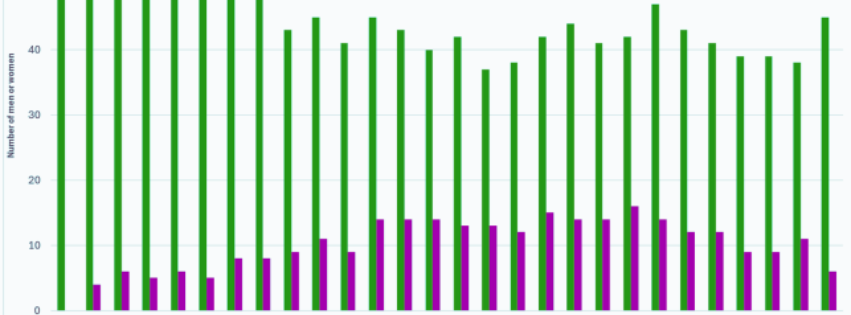This report to the Canberra & Goulburn 2024 Synod was unanimously received and endorsed to establish a commission as per its recommendation.
From the Executive Summary:
Over the course of its history the Anglican Diocese of Canberra and Goulburn has been at the forefront of the extension of women’s ministry to the three orders of ordained ministry. The fruit of women’s ministry has been clearly evidenced in the Diocese. Moreover and not surprisingly, our Diocese has been a sending Diocese. Many women who gained experience in ministerial leadership in this Diocese have gone on to serve in other Dioceses. This is our heritage and we believe it has been a blessing to the wider church. And on the eve of this report we are about to welcome back to our Diocese one such woman as our Assistant Bishop. All this is a cause for great thanksgiving.
However, not all is as it should be or might have been expected. The evidence gathered in this report indicates that the capacity of the Diocese to build partnerships with women for ministerial leadership appears to have regressed rather than advanced, despite the decision to ordain women as priests more than thirty years ago. This report examines why levels of leadership among women in parish ministry have gone backwards despite this long-term commitment to their access and involvement in ministry as deacons, priests and bishops. The report outlines the pattern of disparity that has emerged by listening to the experiences of women from all levels of leadership based on interviews and focus groups. It contends that the Diocese has lost women from leadership because of cultural, theological and organisational barriers. It argues that an organisational culture that values the full participation of women in leadership can be built but only if a coordinated approach to constructive change is adopted and implemented. The report outlines a way forward to enable the strengthening of, and indeed flourishing, of women in the threefold orders of God’s church for the sake of the gospel.
Underlying this report is the conviction that the participation of women in all the ministries and orders of the church is something that arises from the gospel itself. The building up of the people of God and the mission of God in the world is a work for all.
Recommendations
That this Synod supports the establishment of a Women in Leadership Commission, for a term of at least five years with an option to renew.
The Commission should be established under episcopal oversight and leadership, to ensure that its findings and recommendations are given due weight and lead to lasting change. Women with ministry leadership experience should fill the majority of the Commission’s appointed positions.
The Commission should develop and lead the implementation of a systematic and strategic approach to reduce the disparity between men and women in full-time stipendiary roles.
The goals of the diocesan strategy are to:
● to address cultural barriers that have caused the decline in women offering for ordained ministry, including attitudes that are patronising and hostile to women’s leadership in the Church of God
● to provide safe and attractive workplaces for clergy, with adequate supports, conditions and realistic expectations
● to ensure the processes and procedures by which those in stipendiary ministry engage with the Diocese are procedurally fair, psychologically safe, well coordinated and competently managed
● to establish and invest in approaches that nurture the ministry and leadership of ordained women, through vocational discernment opportunities, networks, mentoring and role models.
Read the full report here:
https://anotherplacetoparty.net/wp-content/uploads/2024/09/Addressing-Disparity-Report.pdf
